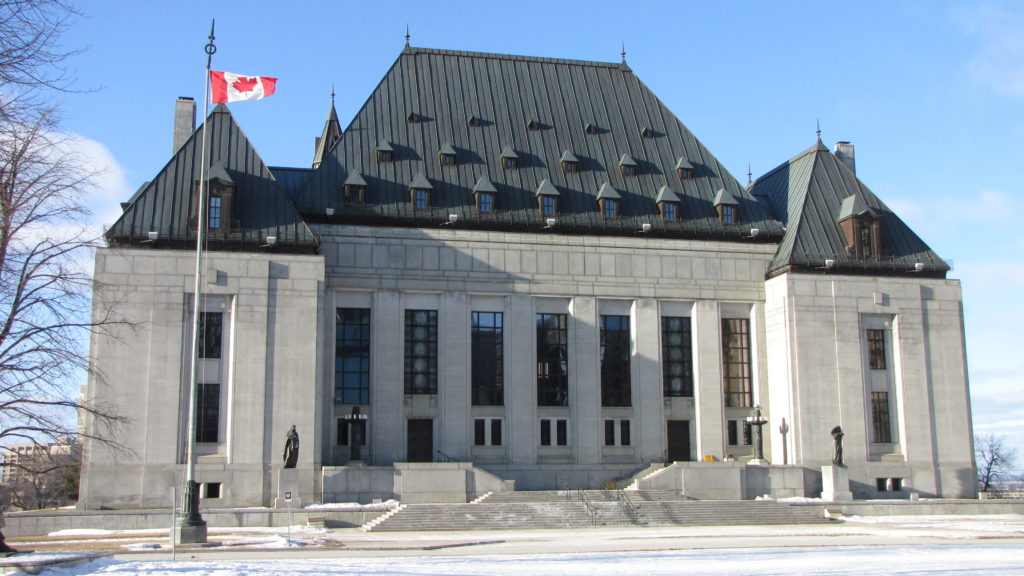A federal court ruling issued today has reaffirmed the presumption of open courts in Canada in a significant case involving Northern Gateway protesters. Justice Barnes dismissed an order sought by the Attorney General (AG) for confidential filings of the certified tribunal record (CTR) of a Security Intelligence Review Committee complaint hearing. Relief sought under Rule 29(2) of the Federal Court Rules was also rejected, in which the AG asked for the case review to be conducted in camera.
The proceedings started with a complaint from the British Columbia Civil Liberties Association (BCCLA) alleging unlawful investigation carried out by the Canadian Security Intelligence Service. CSIS was accused of unlawfully investigating environmentalists that were looking to protest against the Northern Gateway Project in 2014. It was also alleged that CSIS shared the information gleaned from their investigations with members of the National Energy Board and private-sector petroleum businesses.
The complaint was heard before the Security Intelligence Review Committee, which is authorized by section 48(1) of the Canadian Security Intelligence Service Act to conduct hearings behind closed doors. The complaint was dismissed, a decision the BCCLA now seeks to be set aside. The BCCLA also contends that the Committee’s decision to issue a confidentiality order prevents them from publicly commenting on the subject matter of the hearing, therefore infringing on their section 2(b) Charter rights.
The Attorney General is currently in the process of reviewing the CTR to redact classified material. The redacted version is to be delivered in May 2019. Once filed, that material would normally become publicly available, something that the Attorney General wants to avoid, at least until the BCCLA’s application for review is settled.
In seeking an order for confidential filings, the AG argued that public access to the CTR would “undermine SIRC’s confidentiality order before the lawfulness of the order can be tested on the merits”. However, here in Canada, courts are presumed “open”. The Attorney General would have to prove that maintaining the integrity of the SIRC confidentiality order is more important than the value of protecting judicial transparency. According to Justice Mosley in Canada (Attorney General) v Almalki, 2010 FC 733, the onus is a heavy one.
The court drew on various case law to justify the decision to deny the AG’s order. Justice Barnes ultimately relied on the test in Sierra Club of Canada v Canada (Minister of Finance), 2002 SCC 41 to determine when a confidentiality order is justified. First, it must be shown that the order is necessary to prevent a “serious risk to an important interest”. Secondly, the beneficial effects of the order must outweigh the “deleterious effects on the right to free expression and on the public interest in open courts”.
The court noted that the SIRC’s authority to conduct complaint hearings in private does not translate to the need for a confidentiality order heading into a judicial review. The AG even admitted that “there is nothing in the unclassified CTR that is inherently worthy of protection”, leading the court to determine that it does not meet the standard for “serious risk to an important interest”. The court decided that “protection for the sake of protection” is not a good enough reason to issue a confidentiality order, which should only be used at the court’s discretion when “disclosure would subvert the ends of justice or unduly impair its proper administration.”
As Supreme Court Justice Fish said in Toronto Star Newspapers Ltd v Ontario, 2005 SCC 41, “the administration of justice thrives on exposure to light — and withers under a cloud of secrecy.” (para 1). Thanks to today’s decision, it looks like the light will be shone on the matters of this complaint. So long as the ruling stands, this case could potentially have far-reaching effects on matters of government disclosure and accountability. All we can do now is wait and see.
This blog post was written by a CCLA-PBSC RightsWatch student. Views expressed do not necessarily reflect the views of the CCLA or PBSC.

